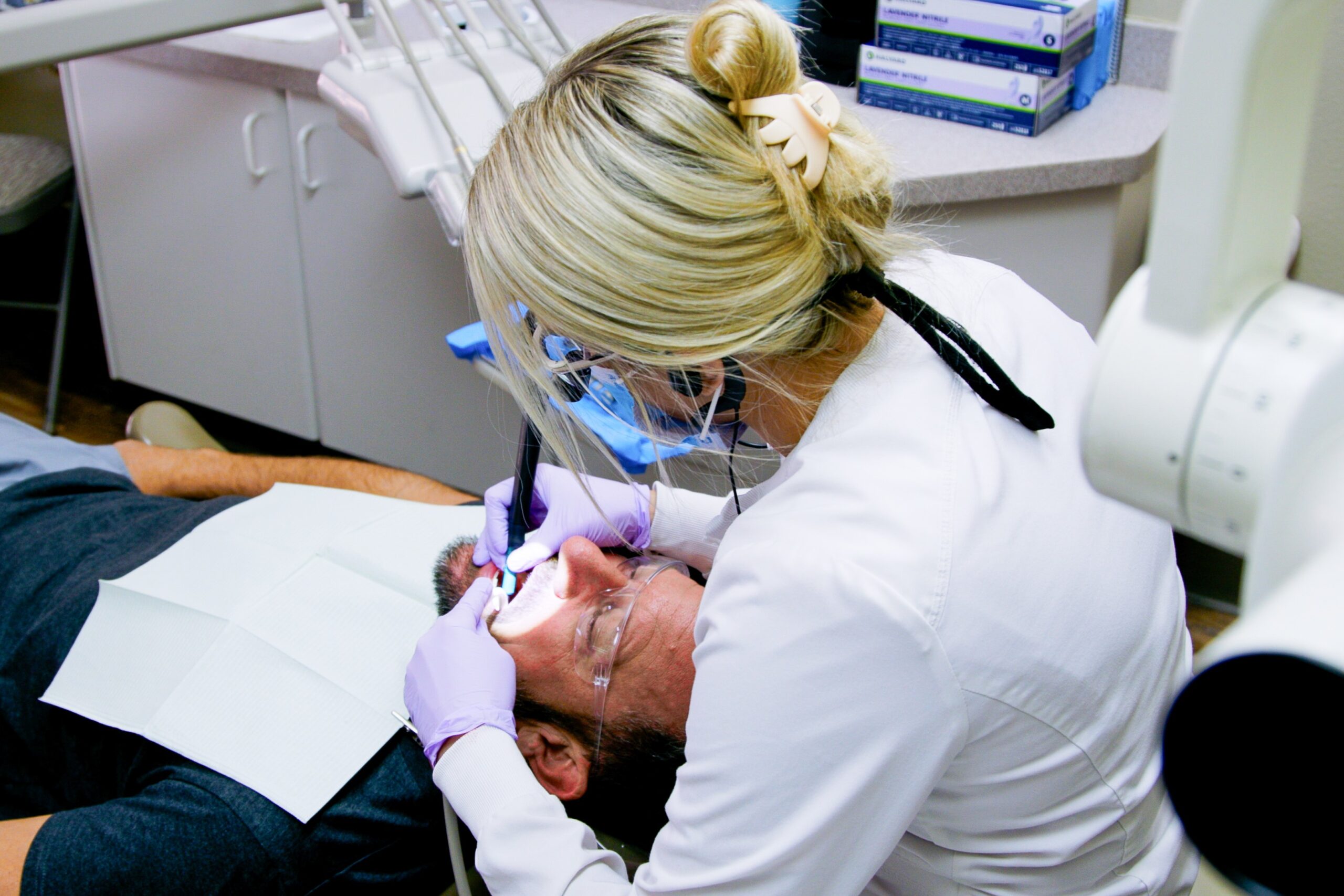All About Gum Recession and How to Stop It
 For someone to realize that they are dealing with gum recession can be a bit startling and bring up a lot of questions on what needs to be done to stop it. A patient may notice that their gums seem to be lower on their teeth than they once were, or their dentist may have brought it to their attention.
Either way, gum recession is something that can be stopped and treated with the appropriate procedures. In this article, we are going to cover exactly what gum recession is and how a dentist can help stop the gums from receding further.
For someone to realize that they are dealing with gum recession can be a bit startling and bring up a lot of questions on what needs to be done to stop it. A patient may notice that their gums seem to be lower on their teeth than they once were, or their dentist may have brought it to their attention.
Either way, gum recession is something that can be stopped and treated with the appropriate procedures. In this article, we are going to cover exactly what gum recession is and how a dentist can help stop the gums from receding further.
What is gum recession?
- Gum recession, also called gingival recession, occurs when the gums begin moving towards the bottom of a person’s teeth. Because the gum tissue is moving in this direction, it can cause the root of the teeth to become exposed if not handled promptly.
The cause of gum recession can be from a number of things, including lifestyle choices a person makes. However, many times the way that a dentist will treat the issue will be dependent on the reason the gums are receding.
Gum recession reason #1: Brushing too hard
- One of the top reasons that a person could be experiencing gum recession is from brushing and flossing too hard. If the patient has been using a hard bristled brush, this can also lead to issues.
It is important for people to remember that brushing with a soft-bristled toothbrush for two minutes twice per day is the best habit to have. Forcefully brushing or using harder bristled toothbrushes can cause the gums to begin receding. Although it may seem like it would keep teeth cleaner, both of these habits are bad for teeth and gums and can affect the enamel, too.
Gum recession reason #2: Genetics
- Just like every other part of your body and health, there are certain things that can happen due simply to your genes. Gum recession is one of those things that some people are more prone to have because of their genetic makeup.
Gum recession reason #3: Grinding teeth (bruxism)
- Another top reason that people experience gum recession is because of grinding their teeth at night, also called “bruxism.” They may not realize they are doing it unless someone has slept close to them and heard the grinding noise. However, a dentist can inspect the other teeth and be able to determine if this could be the reason for the gums receding.
This is not the only oral health issue that can be caused by bruxism, and a dentist can help the issue by having the patient wear a mouth guard at night to stop the grinding.
Have more questions about gum recession?
- Give our office a call any time, and we can answer any additional questions you have about gum recession and what your next step should be. Our staff is always available to answer questions and get you set up to be seen by the dentist to get answers specific to your case. Give us a call!
Request an appointment here: https://www.stgeorgedentalcare.com or call St. George Dental Care at (435) 628-9099 for an appointment in our St George office.
Check out what others are saying about our services on Yelp: Read our Yelp reviews.
Recent Posts
Understanding the cost of dental care is a major concern for many people. You want to maintain your oral health without facing unexpected expenses. While it is impossible to provide a single price for a dental visit, we can explain the factors that influence cost and help you feel better prepared for your appointment. Our…
Looking for a Dentist Near You in St. George? Start Here!When you search for a "local dentist near me," you aren't just looking for an address; you are looking for a team you can trust with your smile. Finding the right dental care in Southern Utah can feel overwhelming with so many options, but knowing…
When you have a damaged or painful tooth, understanding your options is the first step toward relief. Tooth damage can range from small cavities that are easily repaired to deep cracks or infections that compromise the entire tooth structure. The decision in the crown vs filling debate, or even whether an extraction is necessary, depends…
Dental emergencies can feel overwhelming, especially when sudden pain or injury interrupts your life. We understand that finding an "emergency dentist St George Utah" residents can trust during these moments is a top priority, and you are not alone in feeling anxious. Our goal is to help you manage the situation calmly until you can…


